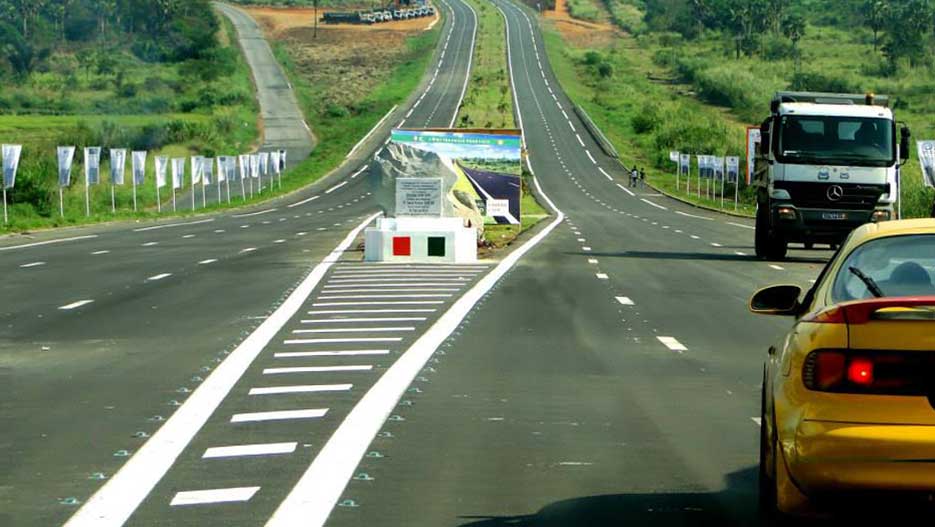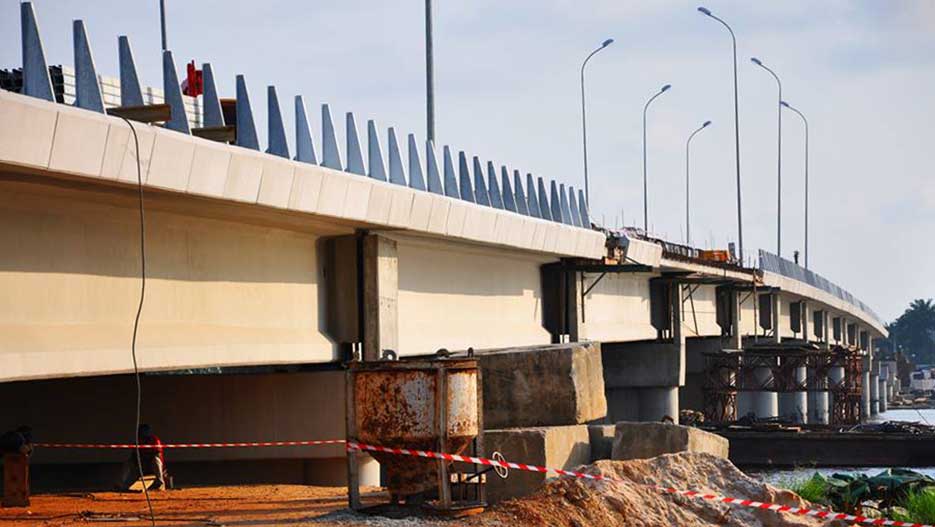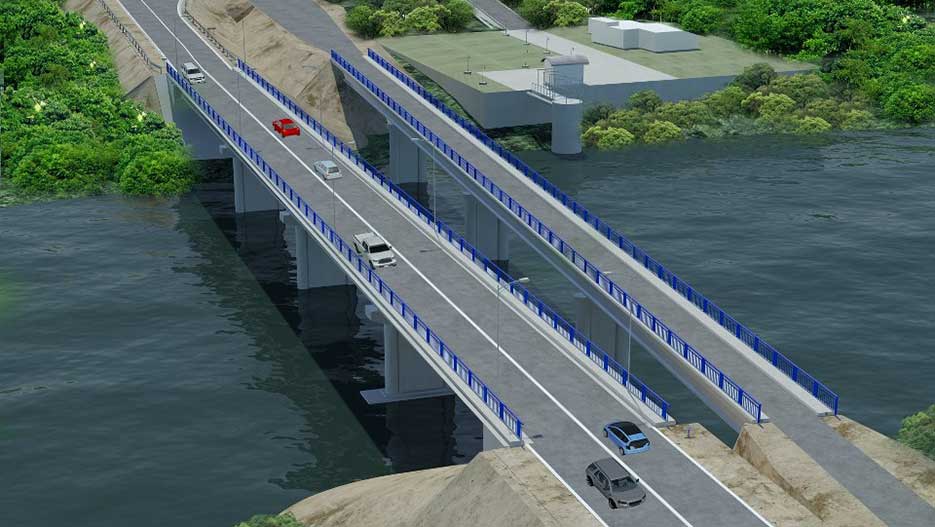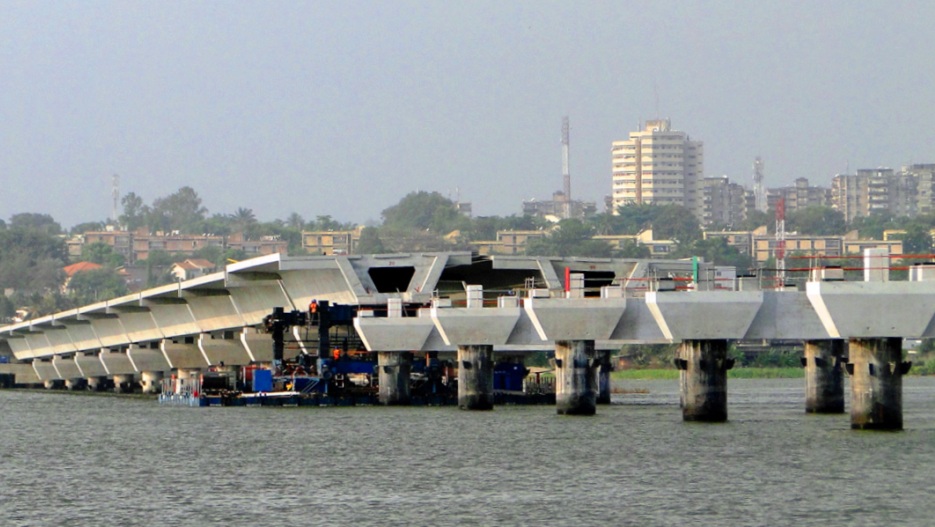Ageroute: Latest Infrastructure Projects in Ivory Coast
Today, the new challenge is how we will go from a situation where we had 2 or 3 projects every year to a situation where we have to manage a lot more projects. Right now, we have more projects in our portfolio for the 2015-2017 program than what we have managed in the past 12 years.
Interview with Bouaké Fofana, General Director of Ageroute
Where do things stand as far as the development of Côte d’Ivoire is concerned? Now the situation is different from what we witnessed in 2011. What is your analysis of the situation at the moment?
When we met a few years ago, Côte d’Ivoire was just out of a military crisis. We were deliberating on the right step to take. After President Ouattara was elected, he articulated his vision for the country. He vowed to lead the country toward an emerging economy by the threshold of the year 2020. Once he articulated his vision, his government, through the Ministry of Economic Infrastructures, the department in charge of the road sector, converted that vision into a manageable strategy. Once that was done, at Ageroute, the country’s road management agency, in charge of both the maintenance of the existing network and the construction of new roads, our role is to implement that strategy on the ground. To summarize, at this point, we have a clear strategy, which has been converted into a road program.
The 2011-2015 road program was the most ambitious in the country’s recent history. It is being implemented as planned. Thanks to the key economic and structural reforms carried out by the government to improve the business environment, I am very happy to notice many positive changes in the road sector since 2011.
Most of the contractors who had left the country because of the crisis have come back. There are also many newcomers. That is a positive sign. Besides the presence of many foreign contractors and engineering firms, many international funding agencies have come back too. Among them, the African Development Bank has moved back at its headquarters in Côte d’Ivoire. As you know, they had left because of the crisis. Many other international institutions and funding agencies involved in the road sector, like the European Union, the French Development Agency, are all back and joining efforts with the World Bank group. All are actively working in the road sector again. They are keen to resume funding in the road sector, because they now see a clear strategy that they believe in. We are very proud to be one of the sectors with the highest rates of disbursement. So, we have a clear strategy, a credible road program, motivated financial and technical partners, major contractors and engineering firms, all ready to work in an improving business environment.
As evidence of that trend, when we launched the last call for bids a few weeks ago, more than 30 contractors sent offers. They are from everywhere, from other African countries, from Europe, Latin America, the United States, Asia and the Middle East. This clearly means that we have won the challenge of attracting world class players.
Today, the new challenge is how we will go from a situation where we had 2 or 3 projects every year to a situation where we have to manage a lot more projects. Right now, we have more projects in our portfolio for the 2015-2017 program than what we have managed in the past 12 years. That means that we have to review our organization.

Considering the situation and the challenges you are facing now, how are you going to attract new talents, new skills, the diaspora and bring new talent from abroad? What’s your plan?
Yes, we do need to build more capacity and develop new skills at all levels of our organization, and even attract outside talents. With the significant improvement of the business environment, of security and the growing economy, the country has regained its ability to attract talents from everywhere, and especially to attract back part its diaspora.
Our Investment Promotion Centre (CEPICI) has developed a program targeting the Ivorian diaspora. Among the diaspora, we have many talented civil engineers and other specialists. This is a source of new talents for our economy in general, and the road sector in particular.
Many projects came to be inaugurated or launched in the road sector. Can you give us a brief summary of what happened recently in this regard?
On December 16, 2014, President Ouattara cut the ribbon for the 3rd bridge of Abidjan named after former President Henri Konan Bédié. In terms of size and packaging, it is a very innovative project. It is a BOOT project, the first and most important private-public partnership project in our sector. One year earlier, in December 2013, the 87-kilometer freeway section (from Singrobo to Yamoussoukro) was opened. That section had been expected for the past 30 years.
When the late President Félix Houphouët-Boigny started the freeway, his goal was to link Abidjan, the economic capital, with the political capital Yamoussoukro, then to continue toward the northern border. For lack of funding, the freeway stopped in the middle of nowhere after 140 kilometers, 87 kilometers before Yamoussoukro. Now we have reached Yamoussoukro, which is seen by the entire population as a major achievement. The the next section of the freeway between Yamoussoukro and Tiebissou will start in 2015.
Two landmark ribbon cutting ceremonies are scheduled in the first six months of 2015: the Jacqueville bridge will be completed early March, while the Abidjan – Bassam 2X3-lane freeway will be completed in June.
The people of Jacqueville have been waiting for this bridge for more than 50 years.

So you have many projects on your plate?
Oh yes! Just to give a few major ones that are scheduled for 2015, as I said earlier, we will continue the freeway from Yamoussoukro to Tiébissou. We will also continue the freeway from Grand-Bassam to Samo. We will start a 1 500-kilometer freeway program. We have the forth bridge of Abidjan for which offers are due early March. We also have more than 500 kilometers of national roads planned for pavement, all starting in 2015. That’s why we are almost doubling our headcount.
What are your expectations from the international funding institutions?
Two landmark ribbon cutting ceremonies are scheduled in the first six months of 2015: the Jacqueville bridge will be completed early March, while the Abidjan – Bassam 2X3-lane freeway will be completed in June.
They are all back in the road sector, as I said earlier. What they want is a clear strategy. This request has been addressed by the Ministry of Economic Infrastructures. Minister Achi has spelled out and prepared a clear strategy, laying out the road sector program that must support the growth of the overall economy.
Our expectation therefore is that the international funding community will continue, as they currently do, to strongly support the governement’s strategy and plans.
We are also aware that the international funding institutions cannot meet all the funding needs of the road program. We therefore must, with the assistance and support of the international funding institutions again, involve the private sector. A large part of our funding needs is expected from the private sector through PPP projects. To that end, the government has designed a PPP framework which is also well suited for the road sector. We are consequently opened to discuss with the private sector.
With so many projects, what is your main priority?
Internally, within Ageroute, the priority is training. When you double your size as we plan to, it’s a real challenge. Not only do we have to strengthen the capacities and skills of the existing staff, but we also have to attract new talents and new skills. Minister Achi has insisted on that issue in his strategy, and in his dialogue with the international funding agencies. As a result, the European Union has agreed to fund a project aimed at strengthening the capacities of all the players in the road sector, not just Ageroute, but also the Road Fund and the Ministry itself.

Is this the project about the database?
Part of the project is to implement a road database. But it is a multi-goal project, with a training component, an organizational re-engineering compent, and the design and implementation of new management tools and systems. Managing just a few projects doesn’t require very sophisticated management systems. But when you have to manage 10 or 15 projects spread all over the country, then you need another kind of management system. That’s why the European Union and the French Development Agency are providing this overall technical assistance.
Where do you envision the country in the medium term, like say 3 years from now? Where would you like the country to be?
I am pretty confident. If we continue to grow at the same rate as in the past 2 or 3 years, at the rate of 9%, we will be moving steadily on the path towards an emerging economy. We must find new ways of strengthening our partnerships with the private sector.
Today, our public procurement system is time consuming, despite many tangible improvements. Now we need to find new ways. For instance, multi-year contracts is one of the ways to go to explore the full potential of the partnerships with the private sector.
Tomorrow, we will need more business-oriented people. Sure, we will always need engineers. But tomorrow’s engineers will need to have a business friendly approach to their work, who will look at the nation’s road network and come up with innovative packagings for the future projects.

So on the way forward, the challenge will be finding such people and ways?
Yes. If you consider the third bridge of Abidjan, if we had depended solely on public funds, it would not be finished today. It might have happened in the next 5 or 10 years. But because we brought the private sector on board ( financiers, engineers, etc.), we were able to find the right packaging for that bridge. The government is considering an urban rail system in Abidjan. In this case too, if the government had decided to go alone, it would have taken a long time to mature. The government wants to start the works in 2015 and hopes to have the urban transit system ready by 2017. It would be extremely difficult to meet that goal without the involvement of the private sector. The role of the private sector will be really key in the years to come.